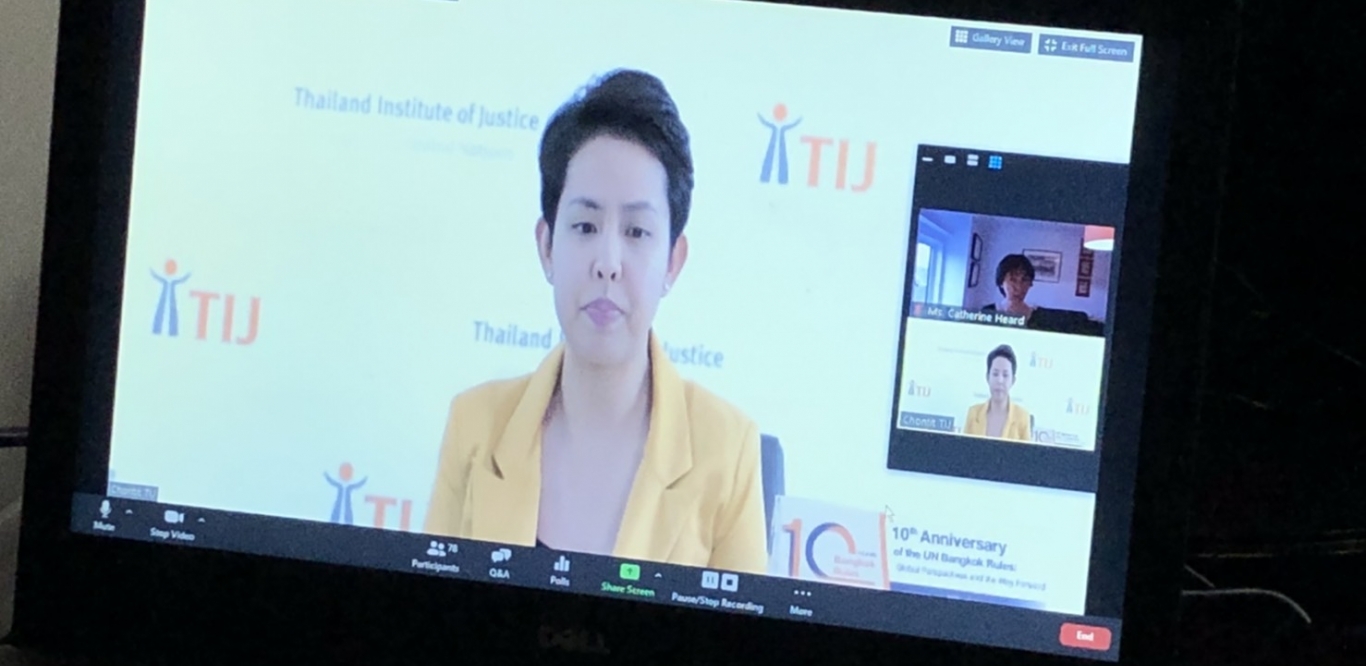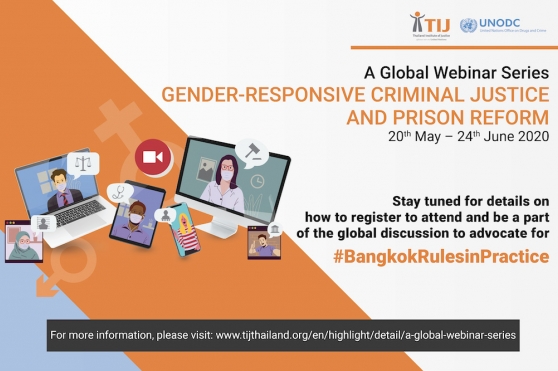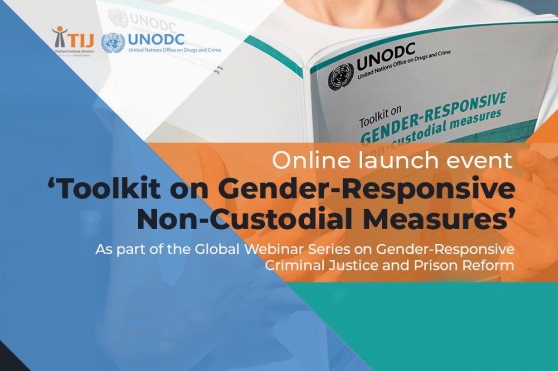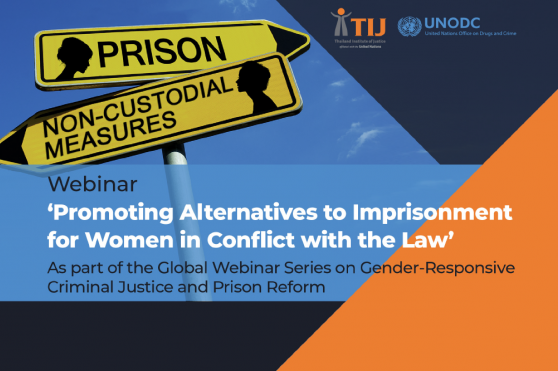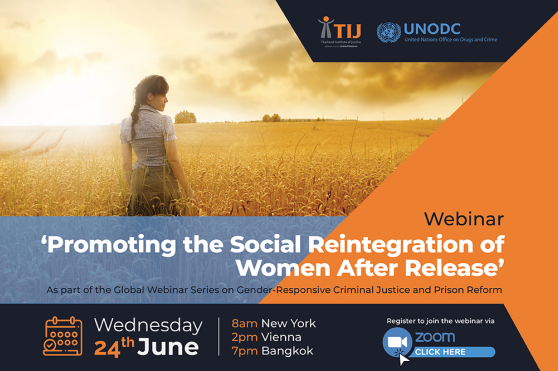Webinar summary: 10th Anniversary of the UN Bangkok Rules: Global Perspectives and the Way Forward
21st December 2020 marks 10 years since the adoption of the historic United Nations Rules for the Treatment of Women Prisoners and Non-custodial Measures for Women Offenders (also known as the Bangkok Rules). These were the first international guidelines that officially recognized the gender-specific, distinctive needs of women prisoners.
To commemorate this milestone and discuss the way forward, the Thailand Institute of Justice (TIJ), the United Nations Office on Drugs and Crime (UNODC), and Penal Reform International (PRI) organized an online event on Monday, 7th December 2020.

“While women and girls account for less than 7% of all people in prison, the female prison population has risen more than twice as fast as the male prison population over the past two decades. In many countries, women prisoners are more likely to be first time offenders in prison for non-violent offences. However, penitentiary and criminal justice approaches are largely shaped by male offenders and prisoners”, highlighted Ms. Ghada Fathi Waly, Executive Director of UNODC, during her opening remarks. She went on to highlight how this impacts women’s health, safety, their families, communities and their chances of building a better future after their release. While she acknowledged the importance of the Rules as the foundation for a just and inclusive society, she emphasized the need for greater gender-responsive non-custodial measures to build fairer and more resilient communities, to recover from COVID-19 and beyond.
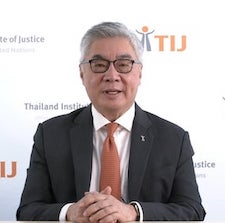
Dr. Kittipong Kittayarak, Executive Director of TIJ echoed similar sentiments by highlighting that the disproportionate increase of women in prison “is a symptom of a much larger broken social structure; one that creates inequality and poverty that very often pushes women into offending”, and creating meaningful criminal justice reform will require us to collaborate with the governments, civil society, the private sector, NGOs, communities and the women themselves. “Only then will we be able to see a world where fewer women come into prison, and the ones who do, never return”, he concluded.
 Dr. Catherine Heard, Director, World Prison Research Programme, Institute for Crime & Justice Policy Research next took the floor to speak about interesting trends since the adoption of the Bangkok Rules. Since 2010, she noted that countries which previously held the largest female prison populations continue to experience upwards trends, but at a slower pace than the first decade of the millennium. This upward trend is especially worrying in the Asian region, with increases in China, Indonesia, the Philippines and Thailand. She attributed the increase in female prison population to the war on drugs, income inequality and social marginalization. “Given the high financial and social costs female imprisonment carries, we really need to think of its excessive use as we know it does not contribute to public safety. States have to foster the use of alternatives to imprisonment and look for diversion where possible,” she said.
Dr. Catherine Heard, Director, World Prison Research Programme, Institute for Crime & Justice Policy Research next took the floor to speak about interesting trends since the adoption of the Bangkok Rules. Since 2010, she noted that countries which previously held the largest female prison populations continue to experience upwards trends, but at a slower pace than the first decade of the millennium. This upward trend is especially worrying in the Asian region, with increases in China, Indonesia, the Philippines and Thailand. She attributed the increase in female prison population to the war on drugs, income inequality and social marginalization. “Given the high financial and social costs female imprisonment carries, we really need to think of its excessive use as we know it does not contribute to public safety. States have to foster the use of alternatives to imprisonment and look for diversion where possible,” she said.
 This was echoed by Ms. Claudia Baroni, Crime Prevention and Criminal Justice Officer, UNODC, who spoke about the importance of non-custodial measures when dealing with women offenders. She mentioned the ‘Toolkit on Gender-Responsive Non-Custodial Measures,’ jointly published by UNODC and TIJ. “This Toolkit provides support and guidance in ensuring that women in contact with the law are not detained or imprisoned unnecessarily and that detention is used as a measure of last resort”, stated Ms. Baroni. She also spoke about UNODC’s recently developed study guide in Southern Africa on the sexual and reproductive health of women prisoners. This Guide includes modules on prevention of mother to child transmission of HIV in prison, Tuberculosis care and treatment, human rights and gender based violence as well as ways of managing mental health issues in prison.
This was echoed by Ms. Claudia Baroni, Crime Prevention and Criminal Justice Officer, UNODC, who spoke about the importance of non-custodial measures when dealing with women offenders. She mentioned the ‘Toolkit on Gender-Responsive Non-Custodial Measures,’ jointly published by UNODC and TIJ. “This Toolkit provides support and guidance in ensuring that women in contact with the law are not detained or imprisoned unnecessarily and that detention is used as a measure of last resort”, stated Ms. Baroni. She also spoke about UNODC’s recently developed study guide in Southern Africa on the sexual and reproductive health of women prisoners. This Guide includes modules on prevention of mother to child transmission of HIV in prison, Tuberculosis care and treatment, human rights and gender based violence as well as ways of managing mental health issues in prison.

The event was closed by Ms. Olivia Rope, Executive Director of PRI. She highlighted the importance of adopting a rehabilitative approach to imprisonment in order to reduce recidivism. She spoke about the barriers and unconscious discrimination women face in accessing rehabilitation programmes and services, which are limited and often heavily gendered. She also touched upon the impact of COVID-19 on women prisoners, which has brought to a head the urgent need to rethink about how our governments use prisons as a response to crime. “We are at a moment where we can rightly look back on ten years and agree that there is more awareness of the need to have gender-responsive systems and prisons, there are many good practices. But we also need to recognize that this is not enough. There needs to be systemic change which requires investment and leadership,” she concluded.
Presentation download
Dr. Catherine Heard's PowerPoint



